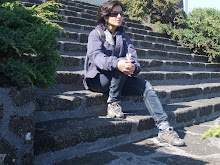The number of young women between the age group of 15 to 25 attempting suicide by consuming acid is on the rise. According to hospital records more than 6000 such patients were admitted to various government hospitals in Chennai city last year. Nearly 5700 survived. But that's the problem. It's where the tragedy actually begins.
Dr. S M Chandramohan, Professor of Gastroenterology at the Government Royapettah Hospital says, "When they consume acid, they think they're going to die. But they dont die. Its a myth."
Emotionally vulnerable women reach for the cheapest, most accessible option available to kill themselves - bathroom cleaners at home that contain acid. While an acid concentrate in a chemistry lab is enough to kill, diluted cleaning acids stop short. They are potent enough to burn up your innards but not enough to kill you. So most people live but end up destroying their lives.
They are unable to eat, talk or even swallow their own saliva! The entire apparatus from the oesophagus to the stomach is rendered useless. Making these patients eat again, is the first priority for doctors. In fact, Dr. Chandramohan has pioneered a new surgical method to enable patients to do so. He says, "The south Indian stomach is an extremely bulky one because we are traditional rice eaters. This has come in handy - we are able to stretch the stomach right upto the mouth and once they are connected patients can eat again."
I found this solution extremely interesting.
Consuming acid has become such a disturbingly common method of suicide that the Health Secretary of Tamil Nadu is now planning to write to the Drug Controller to request that cleaning acids be made available in soap form.
If ever you're in the presence of someone who has just consumed acid, remember NOT to make them throw it up. That will only re-expose their insides to the corrosive liquid. Give them some water (if they can manage to down it) and rush them to a hospital.
Sunday, September 04, 2005
Friday, September 02, 2005
THE INSIGHT INTO A STORY

Sometimes an insight into a story comes from unrelated events.
I was in Pudukottai in southern Tamil Nadu, doing a story on a group of Muslim women who have set up an all-womens jamaat. That is a big deal because traditionally the jamaat has been a male bastion. The jamaat is attached to every mosque and plays the role of conscience-keeper and arbitrator, doling out justice for the people who come before it.
But justice is not always done. To begin with, muslim women are not allowed to appear before the all-male jamaat. (Here, im talking only of Pudukottai. Maybe its different in other parts of the world). So if its a divorce, the husband is present to plead his case but the female is represented by a brother or father.
One of the womens jamaat members said, "The woman is involved in the dispute, but when it comes to the final resolution, she is nowhere in the picture!"
The all-womens jamaat was set up to deal with such and various other discriminatory practices. Sharifa Khanam, a bold, brassy woman set it up so that Muslim women would find a voice. She says, "This is not about religion, this is about power. Islam is a fair religion but these men have appropriated power over the years and dont want to give it up now."
I stored away that comment at the back of my mind and went out in search of these "megalomanical" men. I met some professors at the Arabic College in Pudukottai. All of them said that Sharifa and all the others in the jamaat were immoral. One bearded sage said, "They have a baaad character. They dont even wear the purdah...they come out in their nightie!" These men were genuinely of the opinion that a womans rightful place is at home.
Still i thought - old men stuck in their old thinking. So i searched for more men. More views.
I decided to find them outside a mosque after the evening prayer. Gathering a group around me i asked, "What do you think of the womens jamaat?" Most of them were dismissive of them, some even disdainful. The local cleric said, "Women should obey men. Thats the way it is in the shariat."
I began to believe the womens side of the story more - all the talk of oppression. But i was a bit unsatisfied because i felt i was reporting it in a he-said, she-said kind of way. Anyway, i decided to wrap up and shoot my piece-to-cameras or PTCs (where reporter stands before camera and delivers a few lines) and then head back home.
I planned to do a PTC right outside the mosque where I had met all those men. So the following day i was there again. But this time it was different. They were hostile. They didnt want me around. They thought i was being too nosey and that i should take my camera and leave. But they didnt bother being civil about it. Rude, ungentlemanly and arrogant - that's what they became. That's how they told me to bugger off.
I stood my ground and did the PTC right outside the mosque and indeed in quarreling with me, they had done me a favour. I finally got a real insight into how they must talk to their wives and daughters. The way they tried to bully me, I figured that they dont really treat women as equals. And in trying to collar me out, i felt that they were intolerant of too much questioning.
It didnt make a difference to the way i wrote the story. The "facts" of the case remained the same. I had no additional information - just a deeper insight. That's what I was talking about.
Subscribe to:
Comments (Atom)
